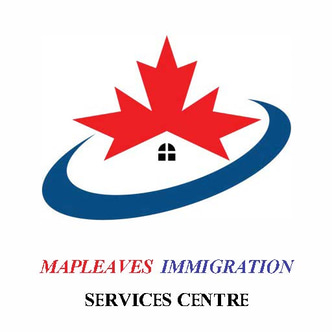LMIA & Work Permit Exemptions in Canada: International Mobility Program (IMP)


If you’re an employer or a temporary foreign worker in Canada, navigating the work permit process can feel like a maze. One key element in this process is the Labour Market Impact Assessment (LMIA), a document that proves a foreign worker is needed because no Canadian or permanent resident is available to fill the role. However, there are situations where an LMIA isn’t required, thanks to the International Mobility Program (IMP). This program allows employers to hire temporary foreign workers without an LMIA under specific circumstances, making the process smoother for both parties. Let’s dive into the reasons you might not need an LMIA and explore the rights of temporary foreign workers in Canada.
I. LMIA Exemptions Under the IMP
What Is the International Mobility Program (IMP)?
The IMP allows employers to hire temporary foreign workers without an LMIA, making it an efficient option for roles that meet specific exemption criteria, such as those under trade agreements, cultural or economic benefit programs, or specialized streams like Francophone Mobility. Unlike the Temporary Foreign Worker Program (TFWP), which requires an LMIA to confirm no Canadians are available for the job, ensure minimal impact on the Canadian labour market, the IMP focuses on flexibility and employer compliance.
Do You Qualify for the IMP?
Before hiring, confirm if your situation qualifies for an LMIA exemption:
Review the LMIA exemption codes to identify if your job offer aligns with IMP criteria.
Examples include hiring workers under international agreements, significant benefit categories, or specific roles like overnight camp counsellors or those in the Innovation Stream.
If an exemption applies, include the relevant code in your offer of employment.
Steps to Hire Through the IMP
Hiring through the IMP requires attention to detail:
Pay the Employer Compliance Fee: Submit a $230 fee through the Employer Portal.
Submit an Offer of Employment: Use the Employer Portal to create and submit an offer of employment, including:
Your business details
Information about the foreign worker
Job details, including duties, wages, and benefits
The relevant LMIA exemption code
Provide the Offer Number: After submission, you’ll receive a 7-digit offer of employment number. Share this with the worker so they can apply for their work permit.
The worker will then apply for a work permit through Immigration, Refugees and Citizenship Canada (IRCC), either online, in Canada (if eligible), or at a port of entry.
Special IMP Streams
The IMP includes targeted streams to meet specific needs:
Francophone Mobility (Outside Quebec)
The Francophone Mobility stream allows employers outside Quebec to hire French-speaking or bilingual workers without an LMIA. This is ideal for businesses aiming to serve clients in both English and French while supporting Francophone communities. To qualify, the worker must:
Have moderate proficiency in French (speaking and listening).
Live and work outside Quebec.
Hiring Overnight Camp Counsellors
You can hire overnight camp counsellors through the IMP without an LMIA. Depending on the worker’s situation, you may also be exempt from the employer compliance fee. Check the IMP guidelines for specifics.
Innovation Stream
Employers in the Global Hypergrowth Project (GHP) can hire high-skilled workers (NOC TEER 0, 1, 2, or 3) without an LMIA. The job must meet wage requirements, and you’ll follow standard IMP procedures for submitting an offer of employment.
Open Work Permits
If the worker has an open work permit, you’re exempt from submitting an offer of employment or paying the compliance fee, as they can work for any Canadian employer.
Hiring in Quebec Through the IMP
In Quebec, hiring through the IMP does not require a Quebec Acceptance Certificate (CAQ) from the ministère de l’Immigration, de la Francisation et de l’Intégration (MIFI). However, you must still submit an offer of employment via the Employer Portal and follow all IMP requirements.
Supporting the Work Permit Application
The IMP, governed by sections 204 to 208 of the Immigration and Refugee Protection Regulations (IRPR), allows employers to hire foreign workers without an LMIA in specific scenarios. Immigration, Refugees and Citizenship Canada (IRCC) assigns unique administrative codes to these exemption streams, ensuring compliance with regulatory requirements under section R200.
Once you’ve submitted the offer of employment, provide the worker with the 7-digit offer number. They’ll use this to apply for a work permit, which may involve:
Applying online from outside Canada: If approved, they’ll receive a port of entry letter and a work permit upon arrival.
Applying in Canada: Eligible workers (e.g., for extensions) will receive a mailed work permit.
Applying at a port of entry: Some workers can apply upon arrival, where a border services officer will issue the permit if all requirements are met.
Ensure your worker has the correct entry documents (visitor visa or eTA) and, if needed, a medical exam or exit visa from their home country. Provide them with information on their rights as workers in Canada.
Key Legislative Sections for LMIA Exemptions
A25.2 (Public Policies): Open work permits for groups like Hong Kong recent graduates or H-1B visa holders (codes R01, R02).
R204 (Agreements): International agreements like CUSMA, CETA, or CPTPP.
R205 (Canadian Interests): Significant benefit (e.g., film production workers: code C14), reciprocal employment, or programs like post-graduation work permits (PGWP: code C43).
R206: Refugee claimants or those under unenforceable removal orders.
R207: Permanent residence applicants, like caregivers.
R207.1: Vulnerable workers escaping abuse (code A72).
R208: Humanitarian reasons, like destitute students (code H81).
The International Mobility Workers Unit (IMWU) assists Canada Border Services Agency (CBSA) officers at ports of entry with LMIA exemption queries during business hours.
Inspections and Compliance
The IMP includes oversight to protect workers and ensure program integrity. You may be subject to inspections, which can be random or triggered by suspected non-compliance. During an inspection, you must provide documents like:
Employment contracts
Payroll records
Proof of insurance
Anti-abuse policies
Non-compliance can result in penalties, such as fines ($500–$100,000 per violation, up to $1 million annually), bans from hiring foreign workers, or revocation of work permits. To mitigate risks, you can submit a voluntary disclosure form (IMM5964) if you suspect non-compliance, which may reduce penalties.
Employer Responsibilities After Hiring
Once the worker arrives, you have ongoing responsibilities to remain compliant:
Verify the work permit and note its expiry date.
Meet the conditions of the offer of employment, including job duties, wages, and benefits.
Provide medical insurance and workers’ compensation as required by your province or territory.
Ensure a workplace free of physical, sexual, psychological, or financial abuse, and protect against retaliation.
Comply with federal, provincial, and territorial employment laws.
Keep employment records (e.g., payroll, contracts) for six years, as they may be requested during an inspection.
What Employers Cannot Do
Employers are prohibited from:
Forcing unsafe or non-agreed work.
Requiring work when you’re sick or injured.
Demanding overtime unless in the agreement.
Punishing you for reporting issues or cooperating with inspections.
Taking your passport, work permit, or identification.
Attempting to deport you or alter your immigration status.
Charging you for recruitment fees.
Changing Employers or Losing Your Job
If you lose your job, you may qualify for employment insurance. To change employers, you may need a new work permit (if applicable), as many are employer-specific. New employers may need to submit a job offer or apply for an LMIA. Use the Government of Canada’s Job Bank to find opportunities.
II. Work Permit Exemptions Under the IMP
Some foreign nationals can work in Canada without a work permit, as outlined in section 186 of the IRPR and specific public policies. These exemptions, detailed in IRCC’s Steps to Determine Work and Assessment of Work Permit Applications, support short-term or specialized roles. Below are the key categories.
Regulatory Exemptions (R186)
R186(a) – Business Visitors: Engaging in meetings or training without entering the labour market.
R186(b) – Foreign Representatives: Accredited diplomats.
R186(c) – Family Members of Foreign Representatives: Dependants of diplomats.
R186(d) – Military Personnel: Foreign armed forces members on official duties.
R186(e) – Foreign Government Officers: Officials on government business.
R186(f) – On-Campus Employment: International students working at their institution.
R186(g) – Performing Artists: Short-term performances (e.g., musicians).
R186(h) – Athletes and Team Members: Participating in events.
R186(i) – News Reporters, Media Crews: Covering events.
R186(j) – Public Speakers: Guest speakers at seminars.
R186(k) – Convention Organizers: Organizing trade shows.
R186(l) – Religious Leaders: Leading worship services.
R perts: Providing testimony.
R186(p) – Short-Term Health Care Students: Performing clinical duties.
R186(q) – Civil Aviation Inspectors: Ensuring aviation safety.
R186(r) – Aviation Accident Investigators.
R186(s) – Crew: International transport workers (e.g., flight attendants).
R186(t) – Emergency Service Providers: Disaster response workers.
R186(u) – Pending Work Permit Renewal: Continuing work under the same conditions.
R186(v) – Off-Campus Work: Study permit holders within allowable limits.
R.nodes: Registered Indians under the Indian Act (see ENF 4: Port of Entry Examinations).
Public Policy Exemptions
Short-Term Work Exemption: For limited-duration roles benefiting Canada.
120-Day Exemption for Researchers: For short-term academic or scientific projects.
IMP vs. TFWP: Key Differences
IMP: Offers LMIA-exempt work permits (open or employer-specific) and work permit exemptions for roles like software engineers or artists. Employers typically have no housing obligations.
TFWP: TFWP stands for Temporary Foreign Worker Program. It requires a LMIA.
Hiring with an LMIA under TFWP
The Temporary Foreign Worker Program (TFWP) allows employers to hire temporary foreign workers to address labour or skill shortages after securing an LMIA. The worker will need to meet all eligibility criteria, and the employer will need to ensure compliance with the conditions outlined in the LMIA.
The LMIA and work permit exemptions under IMP simplify hiring and working in Canada for specific roles, benefiting employers and workers alike. Whether you’re an employer hiring skilled talent or a worker contributing to Canada’s economy, understanding these pathways and your rights is crucial. Temporary foreign workers, including those without permits, are entitled to the same workplace protections as Canadians. For support, explore the Government of Canada’s Job Bank, contact Service Canada, or contact our immigration expert (RCIC) for specific legal advice!
Mapleaves Immigration Services
©2025 All rights reserved
Verify Authorized Representative
Only an authorized representative can provide Canadian immigration services to you for a fee. It’s law. If you use a paid representative who’s not authorized, your application may be returned or refused.


Contact: info@mapleavesimm.com
